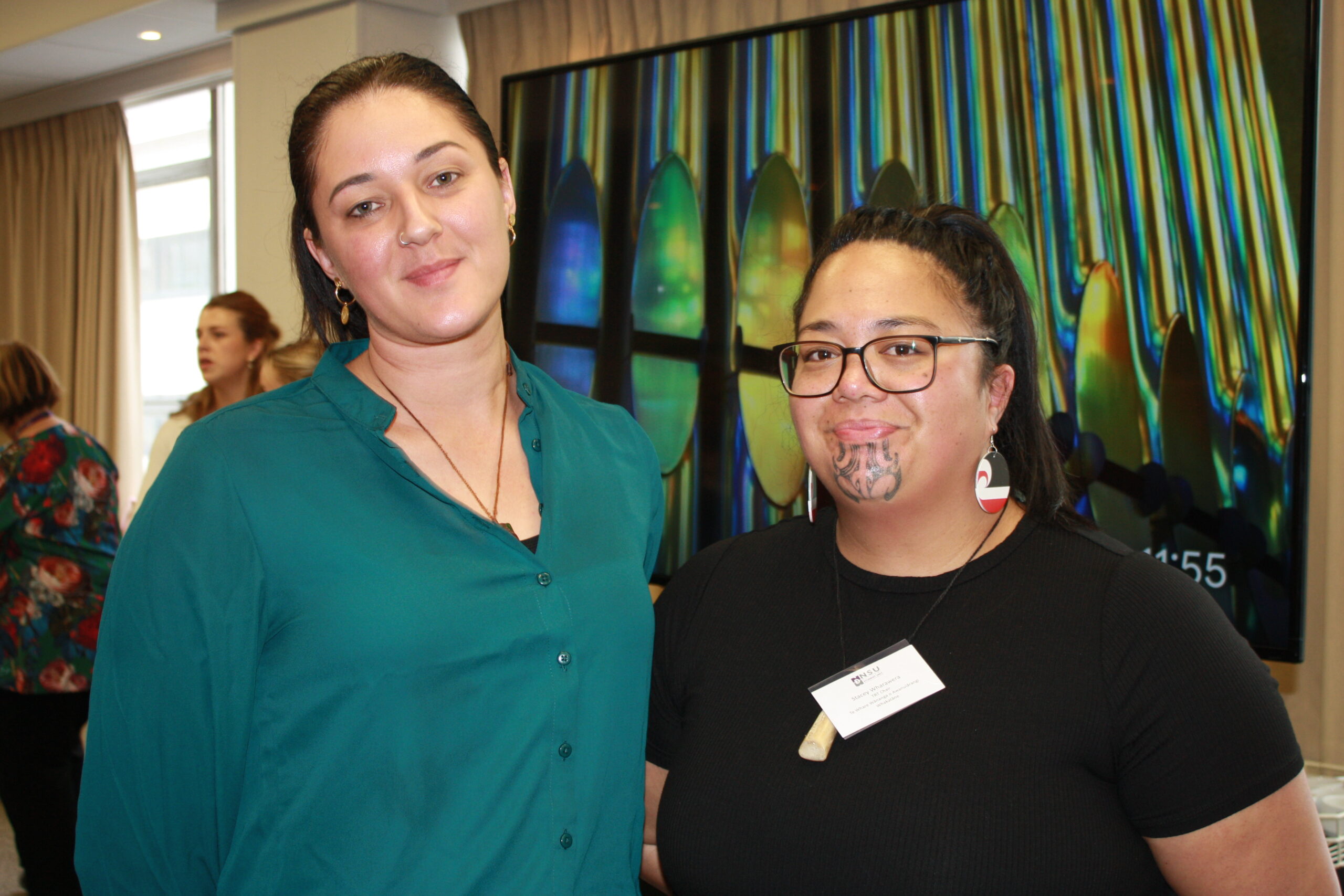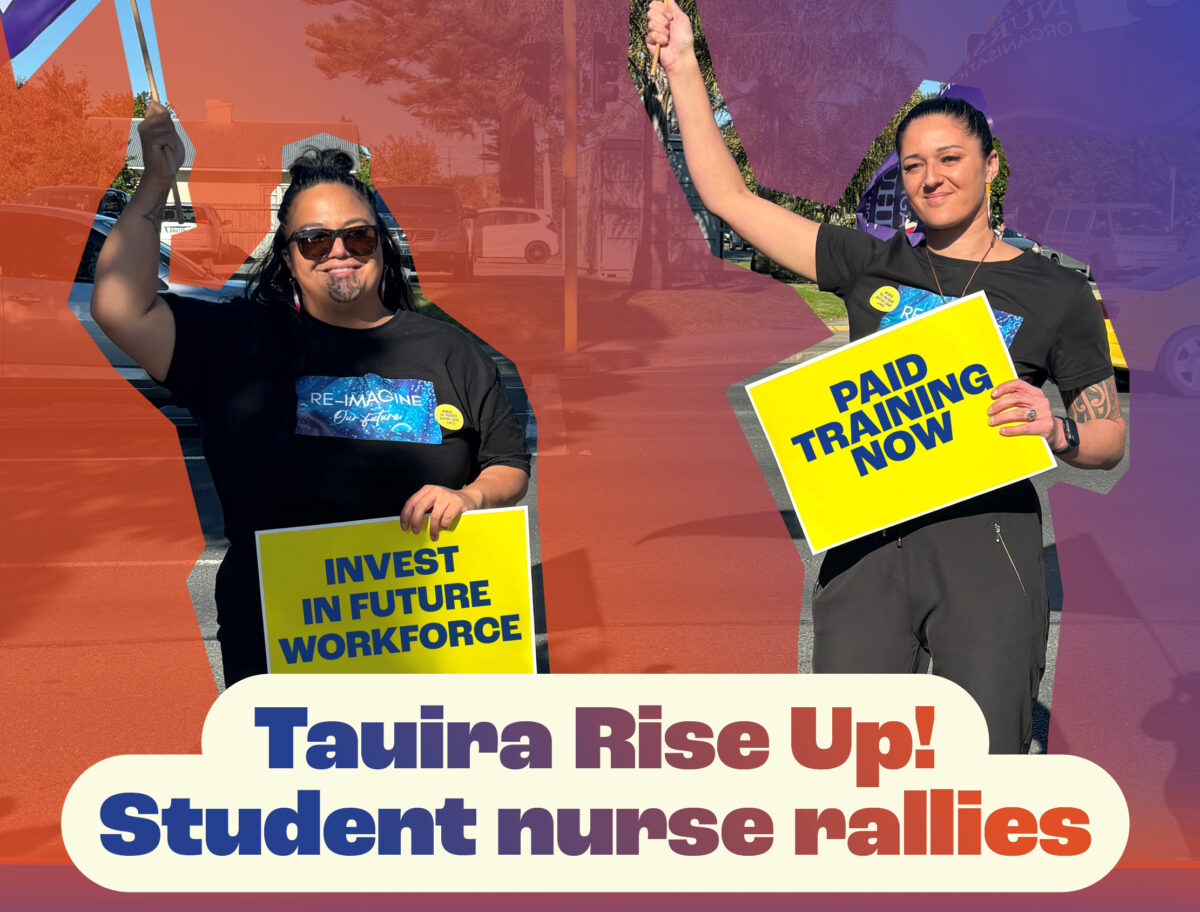Students are rallying in Whangārei, Auckland, Hamilton, Mt Maunganui, Napier, New Plymouth, Palmerston North, Wellington and Nelson. Details can be found here or below:
- Whangārei, 10am-12pm, Tarewa Park, 92 Otaika Road, Raumanga
- Auckland, 10am-12pm, Lumsden Green, corner of Broadway and Khyber Pass Rd, Newmarket
- Hamilton, 10am-12pm, The Base intersection of Te Rapa Rd and Kawera Place
- Mt. Maunganui, 10am-12pm, ‘Te Papa o Ngā manu Porotakataka’ town square
- Napier, 10am-12pm, Napier Sound Shell, Marine Parade
- New Plymouth, 10am-12pm, Huatoki Plaza
- Palmerston North, 10am-12pm, Te Awe Awe Quadrant, The Square
- Porirua, 11.30-1.30pm, North City mall, Porirua (top carpark by food court)
- Nelson, 10am, Trafalgar St Church steps
Nursing students are asking fellow health workers and the public to turn out and support them as they rally around the country tomorrow to raise awareness of their plight.
“Nursing students are struggling. The financial burden is really felt quite deep amongst our nursing students, especially the Māori and Pasifika tauira who often study later on in life,” outgoing student leader Shannyn Bristowe told Kaitiaki.
About a third of nursing students drop out — many in their third and final year, when they have to do a continuous 360 of the 1100 required hours of clinical placement, which made it hard to juggle part-time work.
“We’re finding that students who are doing 40-hour weeks in their placements, and on top of that they have to go to work and do their assignments . . . the burnout just to get through the degree is significant.”
‘We need more Māori nurses. If you look at the growth, we have gone from 4.5 per cent to 7.5 per cent in four decades, which really is terrible.’
And for those who had made it through, Te Whatu Ora’s hiring freeze now meant a bleak outlook for about 1800 students about to graduate, like her.

“You get through this three years and you’ve fought so hard to get this degree and now we’re fighting to get a job – it’s scary,” Bristowe said.
There were 30 people in her class, and just five jobs in her local hospital.
“Before, they had spaces for a NETP [nurse entry-to-practice] student – now they need to have FTE [full-time-equivalent vacancy] available first . . . so we’re waiting for people to leave that nursing role so we can get a job.”
Culturally-competent nurses needed
Nursing students urgently needed jobs and more financial support if New Zealand was to have a truly culturally-competent and representative workforce, Bristowe said.
We are ensuring we are growing those nurses who can kōrero to Māori patients, even if it is saying ‘kia ora’.
“We need more Māori nurses. If you look at the growth, we have gone from 4.5 per cent to 7.5 per cent in four decades, which really is terrible,” she said. “And we really need Māori because we can care for whānau and everybody. If we actually grow our Māori workforce, we will have more faces in the hospitals and community that our whānau will trust and hopefully start bridging the gap in inequities.”
But supporting all homegrown nurses would help, she said.
“We are ensuring we are growing those nurses who can kōrero to Māori patients, even if it is saying ‘kia ora’, even if it’s understanding what they have gone through, what their generational trauma looks like, why they might have a mistrust – and having a more understanding approach when working with those whānau.”
Invest in nurses, not targets
Bristowe said instead of financially-driven health targets for better patient care, the Government should support the future nursing workforce.
“They really need to invest into it, so we can have the patients cared for and nurses aren’t getting massive burnout, and the students aren’t having burnout before they even get to the job.”
NZNO’s national student unit (NSU) wasn’t yet sure what the nature of that financial support should be, but wanted to have the conversation. “Because what we have at the moment is not working.”
Bristowe — who finishes her 12-week final placement today ahead of study leave and the final exam — said it was a “breath of fresh air” knowing she was about to finish.
“There’s this massive relief that the study is finished. It has been an extremely difficult degree, with lots of hurdles, challenges, learnings to get through this three years,” she said.
“However, the scary thing is we’re going into a complete world of unknowns if there’s even going to be a job.”



